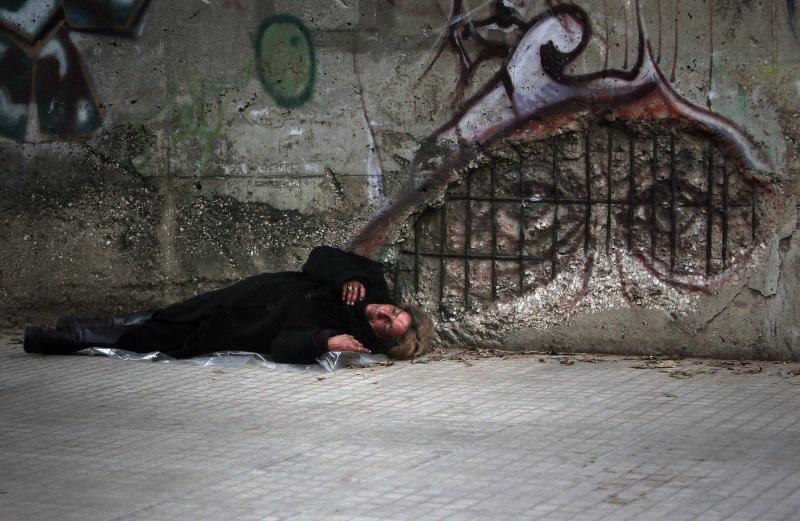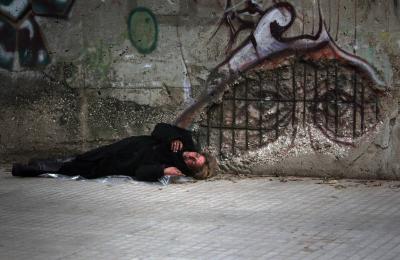When the generation of the 1990s was still sitting in classrooms during their elementary and middle school years, most of the topics chosen for the writing section were about poverty, drugs, unemployment, and suicide. Each individual from that generation inevitably wrote about these crises. At that time, poverty dominated the popular neighborhoods and alleys, as did drugs and unemployment, while news of suicide was met with "disapproval" from the Lebanese people. This generation did not expect that the "boring" and conventional topics of the past would become "daily occurrences."
Recently, suicide has become a common topic of conversation among Lebanese people due to the increase in such cases over the past few days and weeks. In recent days, a man in his forties attempted to jump off the Qaqa’a al-Din bridge in Kesrouan but was rescued by civil defense personnel. We can say that he was luckier compared to those who went before him in the past few days, where multiple suicide cases were recorded across Lebanon. Why do Lebanese people resort to suicide?
"I can no longer endure; the burdens have become heavier than I can bear," said one suicide victim in a voice message to his relatives and friends, mentioning that the reason for his suicide was the living conditions and that he could no longer provide for his children. The same reasons were repeated in all recorded suicide cases according to the messages left by others.
In an interview with the "Warda" website, sociologist Antoniette Habib revealed, "We do not yet have an accurate sociological field study addressing this subject in Lebanon to investigate the reasons that led these individuals to suicide. However, what we have are the messages they left, the content of which indicates that the main reason is the economic situation and burden."
Habib noted that these individuals reached a state of despair that caused their defenses to collapse due to economic and financial concerns, and they could no longer cope. She added, "The Lebanese people, in general, love life, but their lives have become governed by economic factors," further stating that "citizens now fear to turn on the lights; some people cannot send their children to school and cannot afford bread for their homes."
Recorded suicide cases indicate that most of these cases involve men, and the social researcher believes that the living worries weigh heavily on them. The lack of social organization and economic instability has placed Lebanese citizens in a state of "confusion," and according to Habib, "the Lebanese suffer, but despite the ongoing crisis and emerging poverty, they still try hard to continue."
When asked whether this phenomenon would affect Lebanese society, Habib responded: "It will impact when the death toll reaches hundreds, but this does not mean we can ignore this issue and not give it the necessary importance or take it lightly."
### More than an Economic "Shock"
As for Dr. Ibrahim Suleiman, a neurologist and life coach, he believes that the suicide cases happening in Lebanon are not merely an "economic shock," but rather more profound, considering in an interview with the "Warda" website that we live in a state of "the unknown" after being subjected to a state of "shock."
He pointed out that individuals considering suicide experience "mental disturbances, which does not mean they have a psychological disability, but they suffer from depression, post-traumatic disorders, or panic attacks... and have reached a stage where they are unable to carry the responsibilities on their shoulders, thus resorting to escape rather than facing reality through suicide."
He stated, "From the deterioration of the economic and financial situation to the Beirut explosion combined with the recent earthquake, the Lebanese citizen lives in a state of 'shock' or 'Trauma,' but if their awareness level is high and they have a positive acceptance of the situation, along with the courage to continue living and not surrender, they can overcome this state," adding, "Whether we like it or not, the entire Lebanese population has started to suffer from psychological weakness and a decrease in their emotional intelligence."
### Annual Average of Suicide Cases
Recent recorded suicide cases in Lebanon have given the impression of an increase in incidents compared to the previous period. However, according to "International Information," the figures indicate otherwise, as suicide cases decreased in 2022 compared to 2021.
The annual average of suicide incidents during the years 2013-2022 reached 143 cases, with the highest number recorded in 2019, amounting to 172 cases, while the lowest was 111 cases recorded in 2013. Lebanon has been suffering from the disintegration of its economic and political system over the past three years, leading to the collapse of public services and a hemorrhage in the banking system. The impoverished class bears the brunt of the crisis, which jeopardizes stability and social peace in Lebanon.




